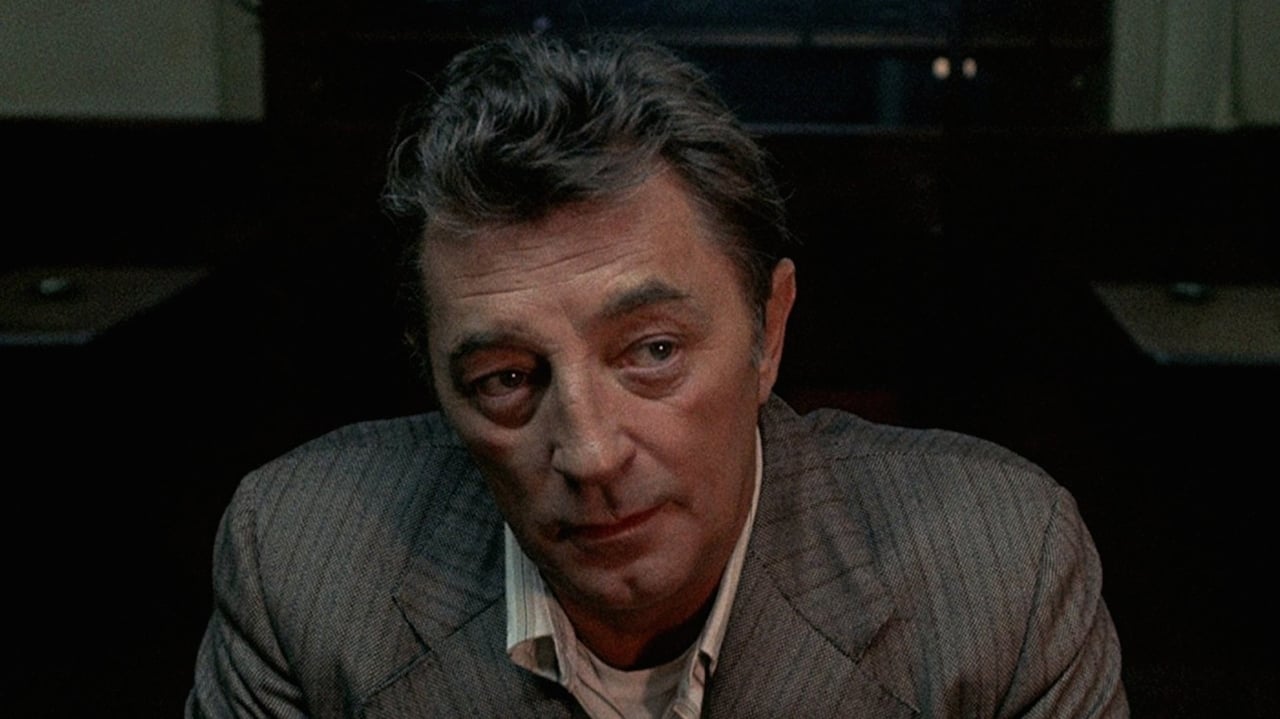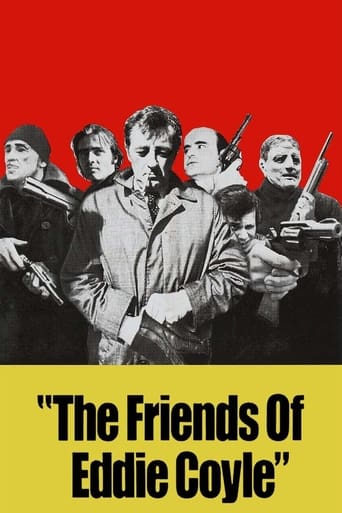

This movie starts out with bankrobbers, who as a rule of attack, take hostage of the bankdirectors wife and childeren BEFORE they do the heist. Very suspenseful start indeed. Great groovy soundtrack by Dave Grusin. Great acting. Looks like a real cold blooded gangster heist movie. Robert Mitchum is the leadrole, who plays a hustler providing weapons to the bankrobbers, he is the middle man. That is unfortunately where the movie loses it's edge. Mitchum is bigger than life. The coolest dude on earth. But this story made Mitchum into a married man who wanted to be with his wife in the later years of his life. He got spooky of another prison sentence and wants to play it safe in his older years. That is not the coldblooded Mitchum we knew from other gangster movies. And although it is a more realistic picture of an aging hustler, it isnt very cool looking to see Mitchum wine about married life and do grocery shopping. That is the first let down. The second let down: Snitching on itself is the lowest one can go in the world of gangsters. And this movie is about snitching to save your own ass. Who is gonna snitch on who I wont reveal, but the snitching kinda spoils the fun of a suspenseful start of this heist movie. Why does it get spoiled? Because in the end the snitches are on the winning hand. Snitches never win in gangster movies. They die, they are on the run from being killed or live a meak and sober life in protection. But in "The friends of Edddie Coyle" the word friends is used sarcastically, because Mitchum hasnt got any. And the guys he does know are ratting on him. The snitches win! Terrible! Then Mitchum starts snitching himself too, which is just a disgrace and big letdown, however realistically it may be...To summarize. This is a great heist movie for the first half of it. Even if we forget about the rather peculiar "feminine" Mitchum, then the end where the snitches win, is still a downer. They should have made another ending to the story, wherein the snitches gets wasted and the gangsters win. Now the movie ends on a downer. It could have been a classic, now it is only half way there.
... View MoreRarely have I seen a more celebrated movie that went over my head more than "The Friends of Eddie Coyle". It's just not a movie I can watch, and I think I've proved that to myself after this third viewing.The plot is impossible for me to follow. I get that it's about an ageing hood played by Robert Mitchum who wants to buy machine guns. Some of the people he knows are cops, and some are robbers. I couldn't tell any of them apart.There are maybe two robbery scenes in the movie, but mostly it's just tedious dialogue that makes no impression, like all of the characters and situations. Mitchum isn't really in it that much, but he spends a lot of time meeting guys in booths and at the end he goes to a hockey game.I have no idea what this movie was even about, or why anyone likes it.
... View MoreDear Peter Yates,you made an edgy film that was true to the book by George.V.Higgins. The Friends of Eddie Coyle is about a bunch of crooks squealing on each other to escape jail sentences. The film is mostly entertaining dialog. The people (actors), places or events are not given too much space. The characters and the plot develops almost entirely through the sparse but often realistic and witty dialog. The film is set in a a male world. There is a lot of machismo. For example, a couple of the crooks casually discuss a woman's vagina. Someone like Tarantino would have tried to emphasize the best dialogs if he had directed this film. What I mean is that most directors would have tried to create a huge event if they had dialogs like the ones in the movie. But your directing style is unromantic and sparse. It was original and faithful to the book. The tension is caged in because of which the film never really rises above a certain level of entertainment. The gangsters in the film are total losers without any honor. They would rat each other out and kiss establishment ass in a second. Norman Mailer expressed surprise for the book - "that so good a first novel was written by the fuzz." I have not watched another gangster flick like The Friends of Eddie Coyle. Robert Mitchum was effortlessly brilliant as Eddie Coyle - a small time gangster who is on his way down. Well done, Peter.Best Regards, Pimpin.(10/10)
... View MoreAfter his last crime has him looking at a long prison sentence for repeat offenses, a low level Boston gangster (Robert Mitchum) decides to snitch on his friends to avoid jail time.While preparing for his role, Mitchum wanted to meet Whitey Bulger and was warned against it by Higgins. Cast member Alex Rocco, a Somerville native, instead introduced Mitchum to Howie Winter of the Winter Hill Gang. That was probably the next best thing! This film is great and is one of those rare stories of the criminal underworld that succeeds fully. Martin Scorsese and Michael Mann have done the genre justice, but this film -- done by Peter Yates -- did it first. I am quite surprised this is not a better-known picture.
... View More